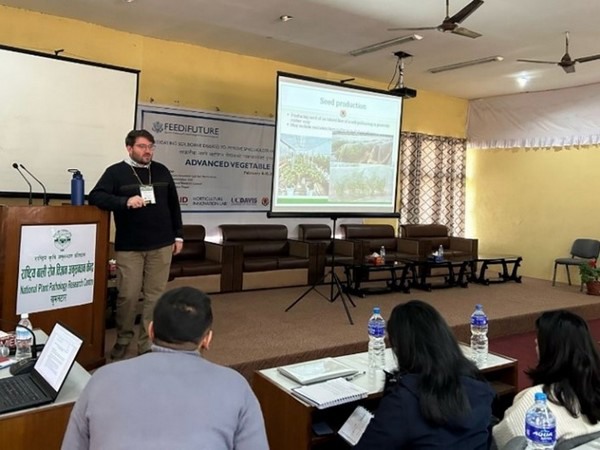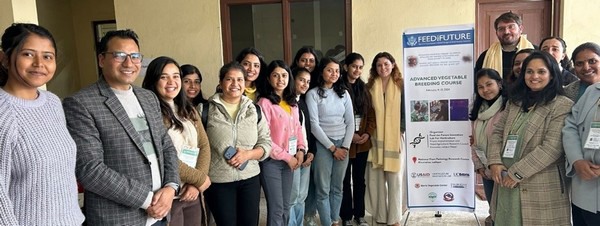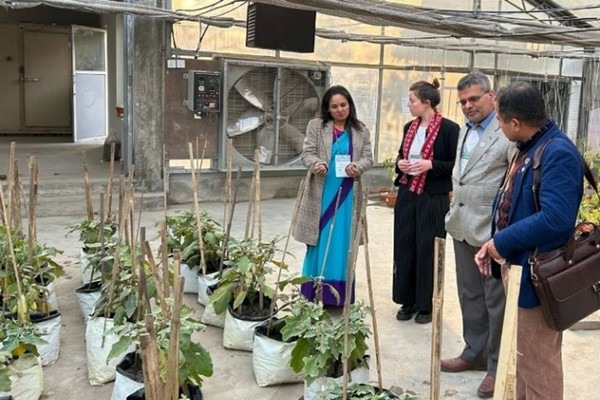Low investment in vegetable research and development in Nepal has meant that there is limited capacity strengthening and resources for much needed large scale breeding programs. This results in high dependence on other countries for an adequate supply of seeds, as well as produce. Farmers face unstable seed supplies of inconsistent quality and of poorly adapted varieties, leading to crop failures that threaten food insecurity and loss of incomes.
In response to this, an in-depth seven-day Advanced Vegetable Breeding Course was held on 4-10 February 2024 at the National Plant Pathology Center at Nepal Agricultural Research Council (NARC) headquarters, Kathmandu, Nepal. It was led by Dr Ram Khadka Dr Ranjana Rawal, with international trainers including Derek Barchenger of the World Vegetable Center, Taiwan, Dilip Panthee from North Carolina State University, Rishi Burlakoti from Agriculture and Agri-Food, Canada, and Kristen Becker of the Horticulture Innovation Lab Management Entity of the University of California – Davis, with funding from USAID. This course brought together 31 participants comprising NARC researchers, university faculty, government representatives, private sector actors, and international partners.

Participants were immersed in lessons in advanced breeding techniques, such as marker-assisted selection and qualitative trait loci (QTL) analysis, amongst many others, along with much-related knowledge that is crucial for developing fruitful breeding programs, including varietal maintenance, seed production, participatory varietal selection, commercialization, and marketing. Hands-on guidance in the greenhouse and laboratory provided participants the opportunity to learn and practice critical laboratory skills required for DNA extraction, polymerase chain reaction (PCR), and gel electrophoresis. This was for many young scientists in attendance who did not have access to advanced laboratory experiences during their early studies, a true 'first' for them, opening their eyes and opening doors to new techniques.

A panel discussion on the closing day of the course gathered experts from across sectors, stimulating discussions beyond vegetable breeding into the need for cross-sectoral collaboration and using research to advocate for beneficial national policy changes. Local and global panelists underlined the importance of regular exchange of knowledge and genetic resources to advance breeding in Nepal.

The optimism from the engaged participants throughout the week was palpable. Biju Adhikari summarized her experience and conclusions. "As a graduate intern, the week-long advanced vegetable breeding course was undoubtedly a fascinating and enlightening experience for me to learn about the state of vegetable breeding, its prospects, and its challenges from both national and international experts. Despite knowing that Nepal is rich in locally adapted landraces that are not optimally utilized, it saddens us to know that there are only few works done related to breeding of vegetables. Thus, the majority of current research efforts should focus on developing durable, productive, and resistant vegetable varieties, involving scientists, research institutes, commercial seed businesses, and intern students."
Source: avrdc.org
